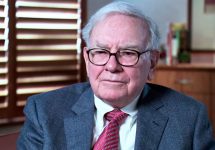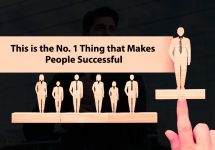
The Goldilocks Rule states that humans experience peak motivation when working on tasks that are right on the edge of their current abilities. Not too hard. Not too easy. Just right.
The Goldilocks principle stems from an old children’s story “The Three bears.” There is a small girl named Goldilocks who tastes porridge from three different bowls. She chooses the bowl that is neither too hot, nor too cold, but the one that has the right temperature. This concept and analogy finds its application in many disciplines like entrepreneurship, psychology, economics and engineering.
The right amount is the crucial thing. When things are too hard, people often give up and when things are too easy, they are not motivated enough to apply themselves. Growth happens when you attempt things that are on the edge of your abilities and push you enough to make progressive efforts.
Successful Entrepreneurs Are Motivated

Most overnight successes are a result of long strenuous efforts and persistence. Angry Bird was Rovio’s 52nd attempt to build a successful game. It was successful. But it came on the back of persistent efforts, learnings and hard work. Rovio created 51 games that failed, before it could develop Angry Bird, which was an overnight sensation.
Bill Gates started programming at 13. He was world class by the age of 19, creating Microsoft with his friend Paul Allen. They put in more hours learning programming, working at their craft and doing what hadn’t been done before. The rest is history.
Even the child prodigies and insanely gifted individuals are persistent in their efforts, which helps them achieve great success. The olympian athletes put in thousands of hours of rigorous practice for skill development, practice mental and dietary disciplines to be successful.
Michael Phelps won an Olympic gold medal at the age of 15. But even he wasn’t an overnight success. Phelps started swimming and training at the age of 7. He practiced relentlessly and held a national record for 100-m butterfly by the age of 10.
Bob Bowman who was his coach said, “Phelps didn’t miss a morning practice from the age of 11 through 16 years-old. He would practice on Sundays, birthdays and Christmas mornings to keep his competitive edge.”
The trainings, daily grind and the tough work ethic is not glamorous. It takes a lot of commitment not to miss the training even for a single day for 5 years. Not a single day. It is the practice and discipline that helped him gain valuable speed, skills and the mental toughness to win. The years of practice helped him build routines that made him the champion.
Michael Phelps went on to win 23 gold medals at the Olympics, the highest ever by an individual. The next best player has 9 gold medals. Great achievements need years of toil and persistence.
Human beings are motivated by challenges. They love growth and progress. Incremental improvements compound overtime & change the fortunes of those who practice it. Great entrepreneurs are always making progressive efforts. They learn the art of devoting time for tasks of manageable difficulty where they can add value.
How to Stay Motivated

Successful entrepreneurs and professionals develop habits. They spend time refining their skills, what they do and build something they envisioned. While most people give up when the going gets tough, however, successful people tend to stick with things longer. One of the reasons is that they are not overly focused on the outcomes as much as the process. They tend to build routines, habits and focus on their work.
They are able to put in progressive work and constantly push themselves by setting targets that encourage them to do their best. For e.g. when you are running a 100m race, if you set yourself a target to beat Usain Bolt’s record, you may give up thinking it’s futile. But you can continue to improve your timing on a regular basis to achieve your best.
Kristin Armstrong won her third consecutive gold medal at the age of 42, creating Olympic history. Kristin had this to say after winning the gold medal at the Rio Olympics,
“My takeaway from Rio was you have to stay your course. You have to follow your vision. After 12 years as a professional cyclist and three times winning the gold medal, my success always came back to my why. You have to know why you’re doing it. And it comes back to my vision.
A vision is one of the most powerful things you can have in life. A vision is a mental picture of a result you want to achieve — a picture that’s so strong and so clear, it helps make that result real.”
Great entrepreneurs are motivated by their vision & do whatever it takes to achieve it. The world is full of uncertainties, a person who constantly pushes himself to acquire new skills and adapt is the one who survives and thrives.
Measure Progress

You have to have some way of measuring progress. The most successful individuals find out ways to measure their progress on a regular basis. They entail themselves to learning strategic ways to improve themselves and the work they are doing.
Entrepreneurs thrive on results. When they are open minded, observe & listen to people around them, it opens up new avenues for them. They learn to take feedback from the right people and act on them. They develop habits, routines and triggers to get things done, take feedback and harness their vision to achieve their goals.
Summary
Anyone can be a great visionary, but it is the execution that separates the successful people from others. Most successful people adopt Goldilocks rule in some way or the other by:
i) Doing things and taking action to finish tasks of manageable complexity.
ii) Find ways to measure your progress regularly.
iii) Take feedback, learn and improve to get the desired results. Stick to the process.







